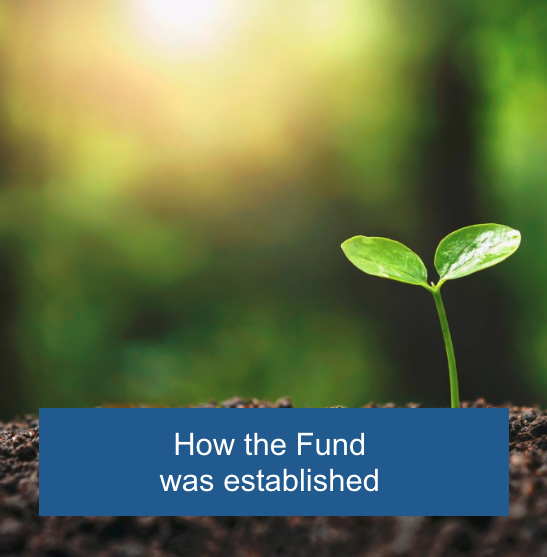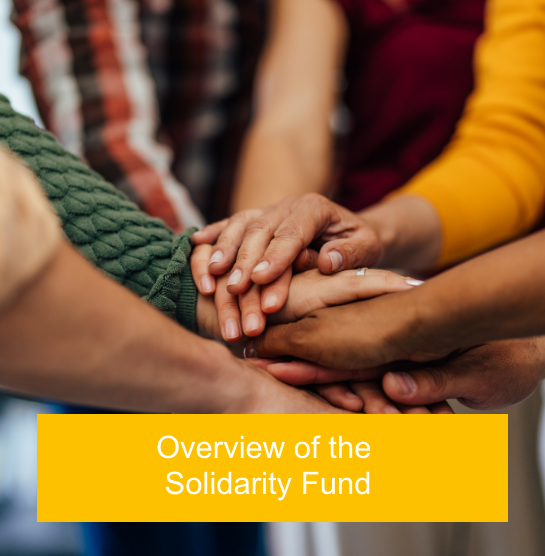Projects

The Fund’s pillars were chosen for their potential to have the greatest contribution to supporting the national health response to the COVID-19 pandemic and ameliorating the impacts on all residents of South Africa. The pillars and projects were determined based on:
- the best available evidence at the time
- their alignment with the national pandemic response
- their ability to be implemented quickly and adapt as the situation evolves
- their ability to have impact at scale
Implementing partners were required to have experience in the Fund’s respective focus areas, on-the-ground implementing capability, the scale to reach all provinces, and the capacity to provide ongoing reporting to the Fund. These partners were identified through situational analyses, partner networks, or time allowing, closed or open requests for proposals. The Fund’s core projects are described below. See the resources page for detailed reports on every project supported by the Fund.
All the Fund’s projects were implemented by a range of civil society, public and private sector implementing partners.
The Health Pillar worked in partnership with the private sector, government, academia, civil society, donors, and other stakeholders to strengthen the capacity of the health system at all levels to respond to the burden of the pandemic, and expand the coverage and reach of services to include vulnerable, uninsured, and hard-to-reach communities.
COVID-19 onset response
Supporting the health system to meet the sudden and enormous demand for personal protection equipment (PPE), COVID-19 testing, and research on the virus spread and evolution to improve decision-making and resource allocation.
Impact
- 65m+ Units of PPE procured and distributed in all nine provinces
- 1.23m COVID tests enabled
- Supported the wastewater study that developed an early warning public health surveillance system for COVID-19, and future disease surveillance
Health system strengthening
Procuring much-needed essential medical equipment, supporting the provision of additional nursing capacity in response to the COVID-19 waves, supporting the extension of the Cecilia Makiwane Hospital in the Eastern Cape, and refurbishment of parts of Charlotte Maxeke Hospital after the devastating fire in April 2021.
Impact
- R376m worth of essential equipment procured
- 100-bed modular hospital extension to Cecilia Makiwane Hospital supported
- Refurbishment of the accident and emergency department and upgrades to the fire safety system at Charlotte Maxeke hospital supported
National COVID-19 vaccination programme support
Providing technical support and capacity to the Department of Health at national, provincial and district level; supporting the vaccination of front-line healthcare workers, and helping to “take the vaccine to the people” by supporting the Department of Health’s vaccine outreach and ensuring hard-to-reach and vulnerable communities were not overlooked.
Impact
- Supported administration of 1 393 827 vaccines and the opening of over 320 outreach sites between July 2021 and 30 June 2022
- Supported the recruitment of 373 additional human resources capacity, 1 939 items of medical and other equipment, and 22 vehicles, helping four Eastern Cape districts to administer 495 716 vaccinations, and strengthening vaccine outreach in deep rural and hard-to-reach communities
- Over 230 national, provincial, and district technical experts appointed from April 2021 to June 2022 to strengthen technical capacity and implementation of the national vaccine programme
- Over 10 000 nursing shifts made possible at eight major hospitals in Gauteng Province at the peak of third and fourth waves of the pandemic

65m+ Units of PPE procured and distributed in all nine provinces

Supported the wastewater study that developed an early warning public health surveillance system for COVID-19, and future disease surveillance
See the Resources page for detailed reports on every project supported by the Fund.
The Humanitarian Pillar was designed as a rapid-response mechanism to address the needs of vulnerable communities for food relief and protection and support from increased levels of gender-based violence (GBV) brought about by the pandemic response measures.
Food relief
Supported the procurement and delivery of food parcels and the provision of digital food vouchers to those unable to purchase food due to the pandemic restrictions. The pillar also supported the provision of Farming Input Vouchers valued at R2 000 to support rural subsistence farmers to purchase farming implements and supplies.
Impact
- 290 123 households provided with food parcels
- 113 691 food vouchers redeemed (valued at R86m)
- R131m in farming input vouchers redeemed with an 87% redemption rate (69% by women headed households) supporting 71 308 households
Gender-based violence response
Supported national level GBV initiatives, COVID-19 protection at care centres, and a communications campaign on where to access support. In its second phase the GBV projects helped bolster the community grass roots GBV response and systemic initiatives to help address the GBV crisis in the country.
Impact
- 133 shelters and care centres provided with 30 777 units of PPE and critical medical services
- 281 community-based organisations and 11 systemic partners supported
- 550 494 beneficiaries reached by civil society partners through 410 328 activities
See the Resources page for detailed reports on every project supported by the Fund.
The South African government and health system could not address the devastating impact of the COVID-19 pandemic alone. All South Africans had to come together and act responsibly to slow the infection rate and help save lives. The Solidarity Fund supported a number of national and community level targeted communications and behaviour change campaigns. These aimed to educate and encourage citizens to practice behaviours that would help minimise the pandemic spread and get vaccinated.
National communications campaigns - a variety of national communications campaigns were run to promote positive behaviours around COVID-19 and support the vaccination programme. These multipronged communications initiatives used media, radio, billboards, taxis, social media, and influential political, sporting health, and social personalities to spread the message, and leverage key events (such as the festive season, back-to-school, etc.).
On-the-ground activations – to complement the national campaigns, community mobilisers took to the streets to engage with the public directly, helping to reinforce messages, and address questions, misunderstandings, and hesitancies.
Targeted campaigns - numerous targeted campaigns and communications initiatives were run through partners in key sectors of society including business, education and youth, the faith sector, and influencers. This enabled the Fund to reach more people directly, to tailor messaging to better land with key sectors of society, and to leverage leaders in these communities as champions, improving the chances of people acting on the information.
Community partners projects – to amplify reach and ensure messaging reached all parts and all peoples of the country, the Fund collaborated with several civil society organizations, who provided information in all official languages and engaged people in their communities and through their faith.
The National COVID-19 Call Centre – The Fund supported the establishment and operations of the National Vaccination Programme call centre. The call centre aimed to increase vaccination uptake by answering frequently asked questions on the vaccine and the vaccination process, providing assistance on the appointment booking process, and providing support to health workers.
Impact
- 85% of those seeing the #UnityInAction campaign said it motivated them to change their behaviour and inspire others to do the same
- 950 community mobilisers working in all nine provinces achieved 670 000 direct engagements on average per month to encourage, support, and convert citizens to get vaccinated.
- Almost 2m calls and over 58 000 interactions handled by email, chat, and WhatsApp in five different languages by the call centre
See the Resources page for detailed reports on every project supported by the Fund.
The Solidarity Fund had shown its ability to mobilise rapidly in support of the COVID-19 pandemic, while maintaining due diligence and cost-effectiveness. The South African government therefore requested the Fund to assist with humanitarian and business recovery support in KwaZulu-Natal and Gauteng Provinces affected by the civil unrest in 2021. R100m was redirected from the COVID-19 response with the approval of the Board and key donors and additional resources sourced through the Fund’s fundraising team. These funds were administered separately from the COVID-19 funds to ensure transparency and accountability.
Food relief
Provided food relief to communities unable to access food due to the destruction of shops and/or interruption to the standard food distribution systems.
Humanitarian relief
Supported those that had lost their livelihoods (and were unable to claim insurance) with R1 000 funding vouchers over three months to be able to continue to support themselves and their families while looking for alternative employment or waiting for their places of employment to re-open.
Business recovery support
Provided financial assistance and business mentorship support to SMMEs, cooperatives, pharmacies and other medical entities damaged or looted in the unrest to rebuild and reopen as quickly as possible.
Civil society support
Supported civil society organisations working in Food Security, Health Care, Peace Building, and Economic Recovery in communities that were severely affected by the unrest enabling them to continue to provide much needed support to their communities.
Impact
- 157 274 food parcels delivered in Gauteng and KwaZulu-Natal benefitting ± 764 550 individuals
- 19 409 beneficiaries redeemed cash vouchers (97% of those issued)
- 936 SMMEs and cooperatives and 20 pharmacies and other medical entities received grants and loans to rebuild and restock
- ± 9 604 jobs saved through business recovery initiatives
- 38 civil society organisations supported, reaching 670 126 beneficiaries directly and indirectly
See the Resources page for detailed reports on every project supported by the Fund.
In April 2022, as it became clear that COVID-19 was no longer an emergency and the Fund was contemplating how it would scale down its operations, severe flooding struck the country, devastating large swathes of KwaZulu-Natal and the Eastern Cape. Again government sought out the Fund to assist with the disaster relief efforts.
The Fund redirected R20m from the COVID-19 resources and raised additional funds for the pillar. Using the experience gained from implementing the COVID-19 response, and leveraging existing contracting mechanisms and its extensive network of partners, the Fund mobilised rapidly. It implemented seven projects in four months in areas of support where it could have the greatest impact on those most severely affected by the floods.
Food relief and essential products
Provided food relief to displaced community members living in temporary accommodations by distributing daily cooked meals; procuring, packaging, and distributing food parcels; and providing wash kits, hygiene packs, and blankets to beneficiaries living in community halls.
Integrated shelter services
Supported the procurement and installation of boreholes, water tanks, toilets, tents, and mattresses at temporary housing sites for vulnerable families, supported the renovation of schools and homes. The Fund also supported the issuing of building material vouchers and cash vouchers to enable families to rebuild their homes.
Psychosocial support
Provided trauma and grief counselling to people in community halls and within communities, helping them come to terms with the tragedy of their experience and build resilience to move forward.
Impact
- 323 830 warm meals served feeding up to 5 130 beneficiaries a day in up to 31 community halls
- 350 families benefitted from the installation of 350 tents, 136 toilets, and 195 water tanks, and toilet chemicals and water purification tablets at temporary housing sites, and provided 1 400 mattresses
- 300 beneficiaries issued with R30 000 building material vouchers with 90% vouchers redeemed
- 5 133+ beneficiaries reached with trauma counselling and psychosocial support
See the Resources page for detailed reports on every project supported by the Fund.



